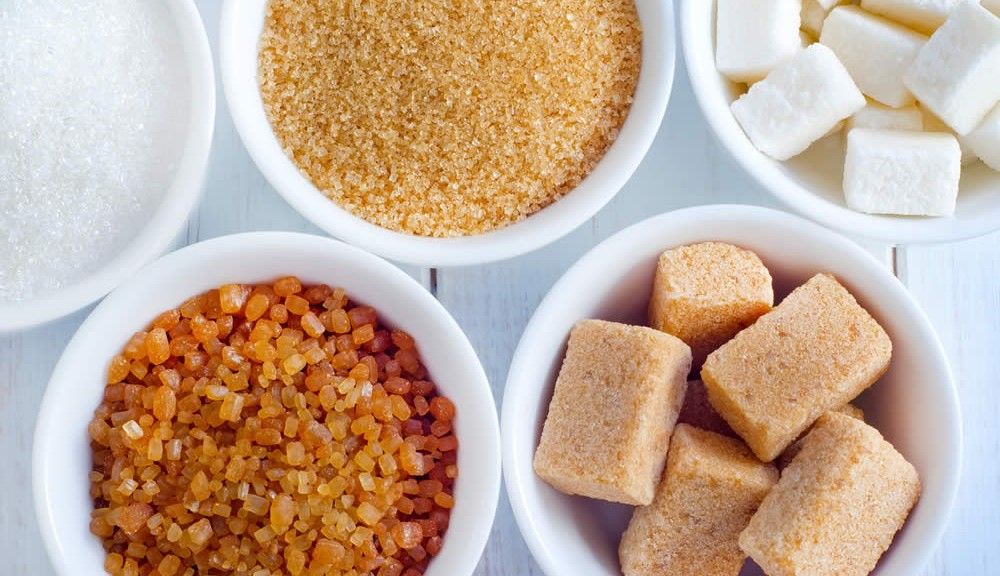
Previous
Ten Obesity and Fatty Liver Disease Fighting Tips

Next
Simultaneous Support of Heart and Liver Health
Helping a Fatty Liver with a Sweet Tooth
Since sugary foods aggravate a fatty liver, consider these five strategies to reduce sweet cravings.
If you identify with having a sweet tooth, you are not alone. For the estimated quarter of American adults with fatty liver disease, that sweet tooth poses a serious health challenge. The yearning to indulge a sweet tooth can be unbelievably intense. So much so, that even knowing about sugar’s aggravation of liver inflammation is often insufficient to thwart sugar cravings. Because indulging in sugary treats puts an additional stress on the liver, those with liver disease may benefit from several strategies to help fend off a sweet tooth.
Liver Inflammation and Sugar
The first step in liver disease, inflammation is the liver’s way of trying to fight infection or heal an injury. However, inflammation that is continual can cause permanent liver damage. If permitted to persist, an inflamed liver will scar. Known as fibrosis, scar tissue can replace healthy liver tissue. By impeding blood from flowing freely through the liver, scar tissue inhibits liver tissue function. For those with fatty liver disease, excessive fat accumulation in the liver is the spark initiating liver inflammation.
Unfortunately, inflammation can also be spurred by sugar consumption. According to Dave Grotto, RD, a spokesperson for the American Dietetic Association, “Sugar can play a role in inflammatory diseases. Poor regulation of glucose and insulin is a breeding ground for inflammation.” While sugar has never been considered a mainstay of a healthy diet, experts recognize these two biological reasons that high blood sugar levels contribute to inflammation:
1. Glycosylation – When blood sugar goes up rapidly, sugar can attach itself to collagen in a process called glycosylation. When collagen becomes glycosylated, it loses its flexibility and becomes inflamed.
2. Interleukin-6 – High blood sugar levels encourage the production of interleukin-6 (IL-6), a powerful inflammatory chemical.
Sweet Tooth Origins
There are a range of reasons explaining the human desire for sweets. According to Christine Gerbstadt, MD, RD, a dietitian and American Dietetic Association (ADA) spokeswoman, “Sweet is the first taste humans prefer from birth.” Without diminishing the importance of emotions or taste regarding sugar cravings, biochemistry appears to play a substantial role in a sweet tooth.
From a biochemical perspective, one of the magnetic draws of sugar is that it is a carbohydrate. Carbohydrates stimulate the release of the chemical serotonin, the body’s natural feel-good chemical. Along the same vein, many antidepressant medications work by keeping serotonin levels high. Sugar is believed to increase the absorption of the amino acid tryptophan, which the body uses to make serotonin.
Tips to Tame a Sweet Tooth
Finding the strength to ignore a sweet craving is easier said than done. Thus, five strategies to help those with a fatty liver reduce sugar intake are described below:
1. Gum – If you want to avoid giving in to a sugar craving completely, try chewing a stick of sugarless gum. According to nutrition advisor Dave Grotto, RD, LDN, “Research has shown that chewing gum can reduce food cravings.”
2. Exercise – Going for a brisk walk or getting another type of exercise will stimulate the release of serotonin and other feel-good chemicals to improve mood. This is particularly effective when low serotonin levels are the cause of a sweet tooth.
3. Frequent Meals – Eating foods full of protein and fiber every three to five hours helps keep blood sugar levels stable. Without this regularity, intense cravings can develop in between meals – making it easier to choose sugary treats.
4. Seek Support – Many people turn to sweet foods when they’re stressed, depressed or angry. Thus, consider if emotions are involved in your sugar cravings. If so, find support to help you cope with these challenging emotions.
5. Snack on Fruit – Make sure to have fruit on hand for when your sweet tooth acts up. Besides being full of fiber (which is filling) and antioxidants (good for liver health), fruit is naturally sweet and satisfying.
Having a sweet tooth definitely presents a health challenge to the millions of Americans with fatty liver disease. To help ease liver inflammation, experiment with these five sugar reduction strategies for easing serotonin-driven cravings.
http://nutrition.about.com/od/grainsandcereals/a/sugarcravings.htm, Satisfy Your Sugar Cravings Without Ruining Your Diet, Shereen Jegtvig, Retrieved March 11, 2011, About.com, 2011.
http://nutrition.about.com/od/askyournutritionist/f/sugarcrave.htm, Why Do I Crave Sugar When I'm Not Even Hungry?, Shereen Jegtvig, Retrieved March 11, 2011, About.com, 2011.
http://www.hepatitis-central.com/mt/archives/2009/10/the_not-so-swee.html, The Not-So-Sweet Truth: Sugar Worsens Hep C, Nicole Cutler, L.Ac., Retrieved March 11, 2011, Natural Wellness, 2011.
http://www.oprah.com/health/How-to-Cut-Those-Sweet-Cravings, How to Cut those Sweet Cravings, Dr. Katz, Retrieved March 11, 2011, O, The Oprah Magazine, January 2008.
http://www.webmd.com/diet/features/13-ways-to-fight-sugar-cravings, 13 Ways to Fight Sugar Cravings, Wendy C. Fries, Retrieved March 11, 2011, WebMD, LLC. 2011.










